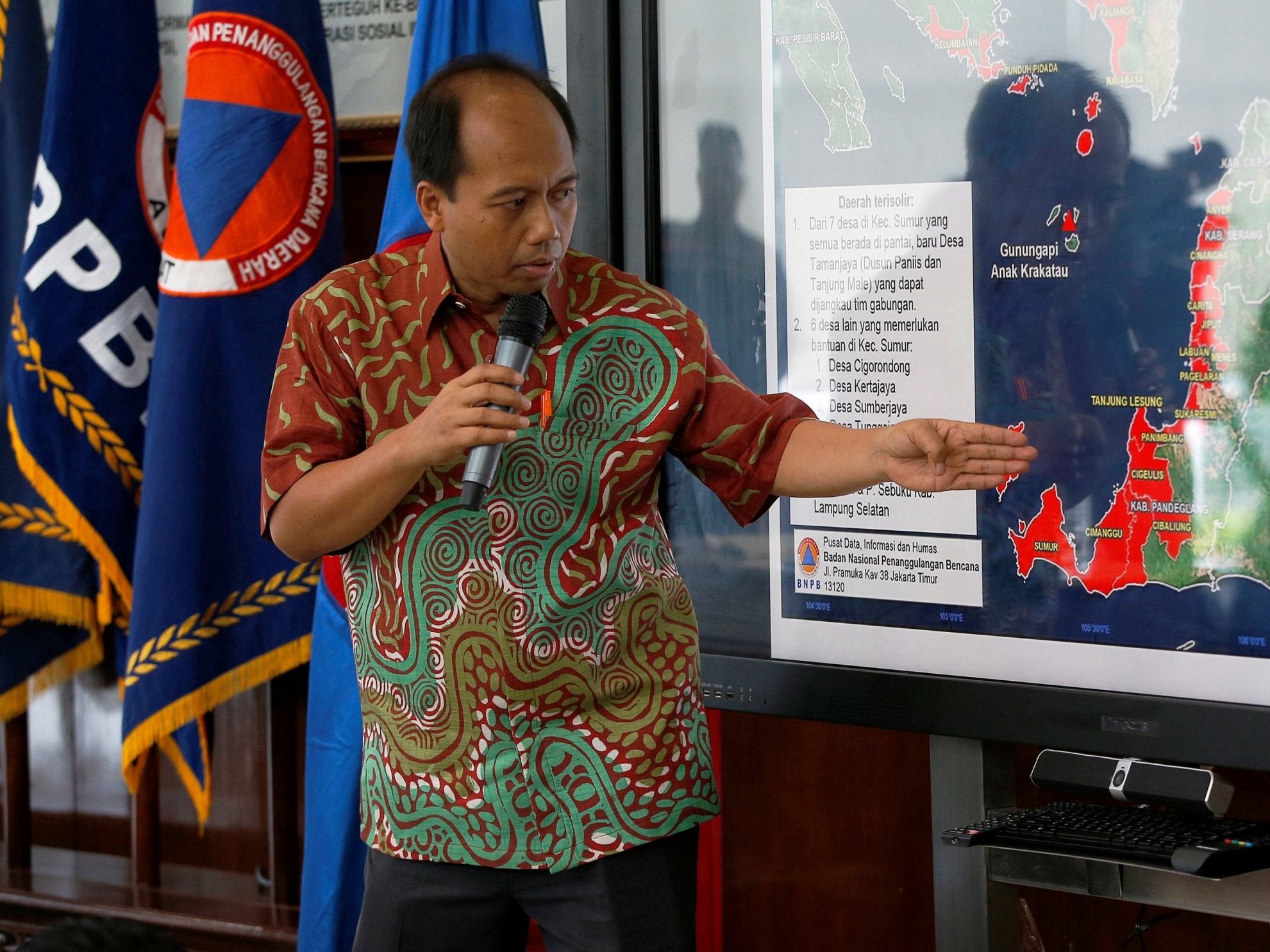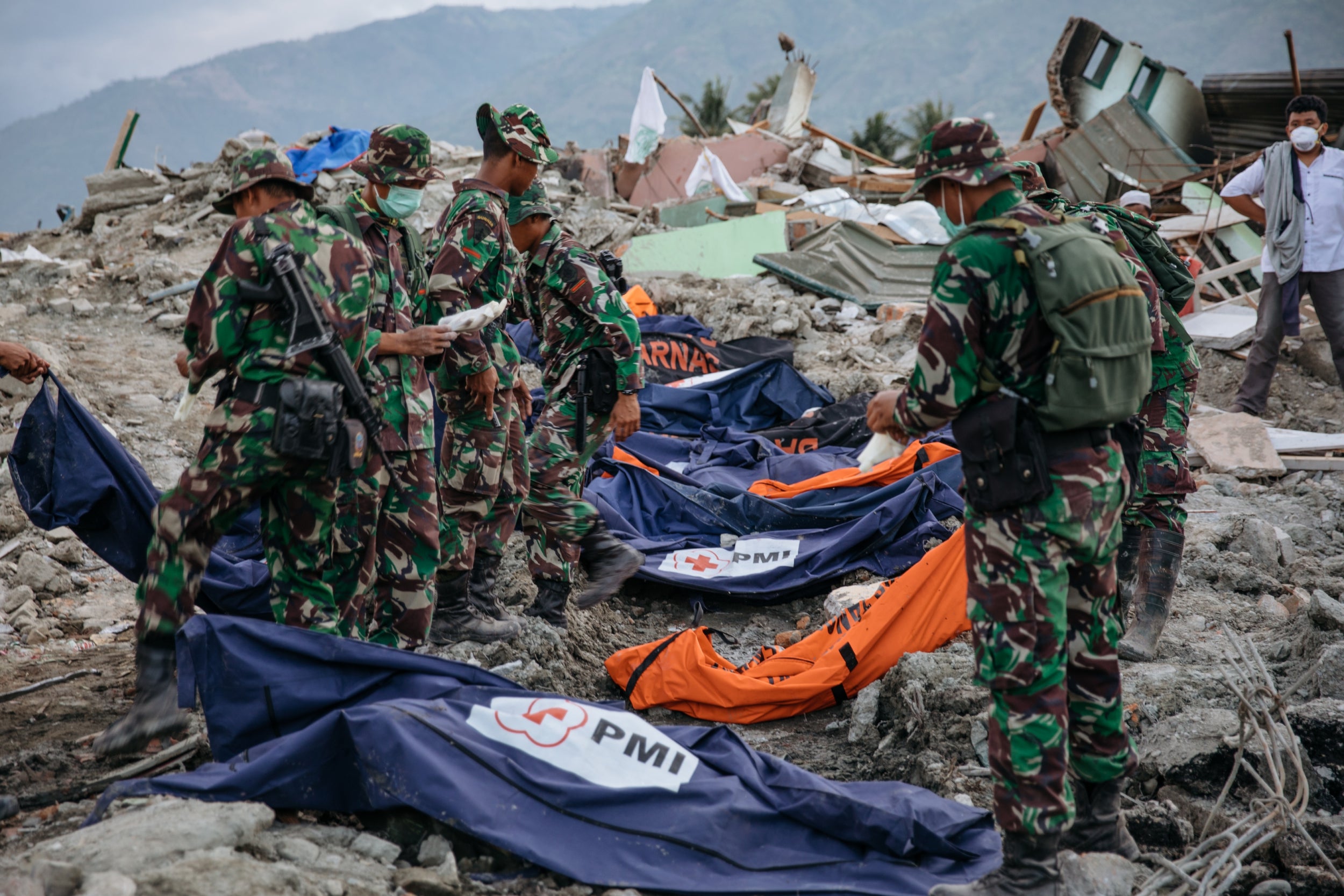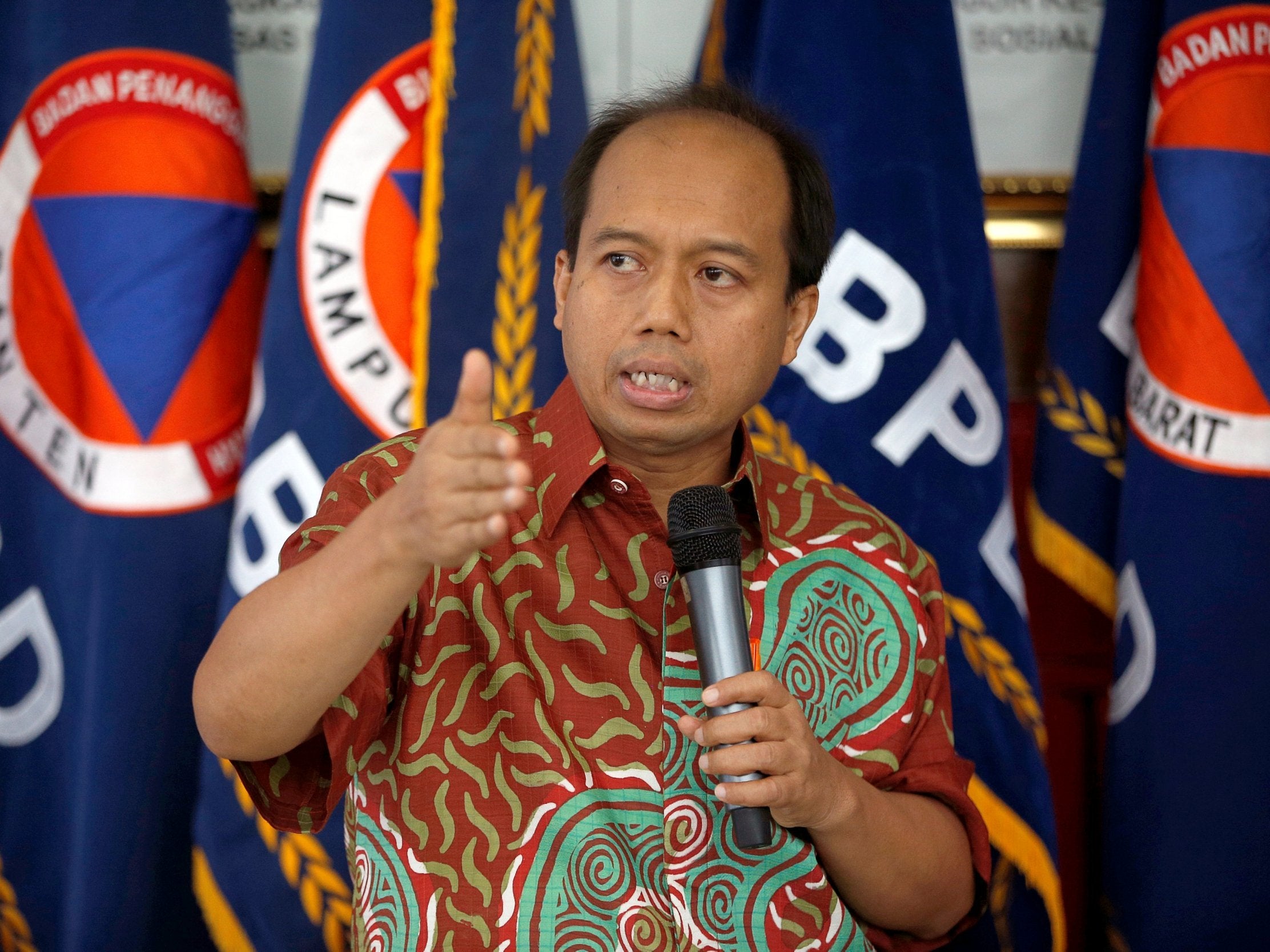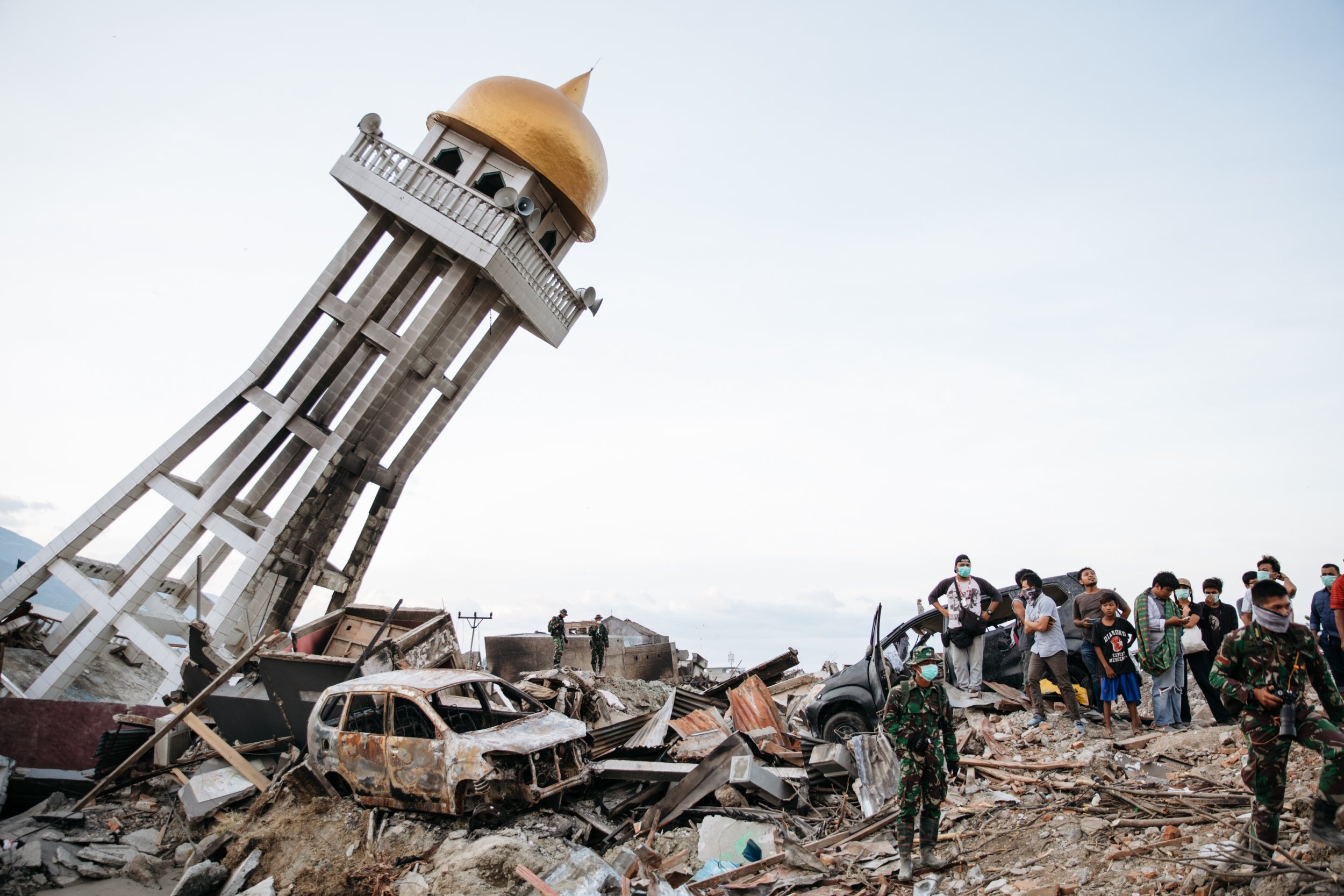How a terminally ill man helped Indonesia through a year of disaster
Despite having stage 4 lung cancer, the spokesperson for Indonesia’s disaster management agency has plunged himself into his work, winning the admiration of a nation

For Sutopo Purwo Nugroho, 2018 was a year of living with disaster, both national and personal.
Sutopo, the spokesperson for Indonesia’s disaster management agency, has become a household name as a source of reliable information during a deadly string of earthquakes, floods, landslides and, just last month, a tsunami that killed more than 400 people.
At the same time, he has been dealing with his own calamity. A lifelong nonsmoker, he learnt in 2018, at the age of 48, that he had stage 4 lung cancer. Doctors gave him one to three years to live.
“When I heard the diagnosis in January, I was shocked,” he says during an interview at his office in Jakarta, the capital. “After that, I accepted that it was my fate, just like people who were affected by earthquakes and the tsunami.”
Now 49, he has used the time left to him to plunge into his work, winning the admiration of his compatriots and gaining a large following on social media.
His Twitter feed is filled with dramatic videos of landslides, rushing floodwaters and erupting volcanoes, interspersed with photos of him undergoing chemotherapy at a Jakarta hospital.
After a 7.0 magnitude earthquake struck the resort island of Lombok in August, killing more than 550 people, he fielded calls from reporters while receiving treatment.
Despite the constant ache in his bones, where the cancer has spread, he has remained a commanding presence at news conferences beamed live across the country.
“When there is a disaster and I have to do a press conference, my adrenaline increases and I even forget I am sick,” he says. “As soon as I get home, I feel the pain.”
A vast archipelago of more than 17,000 islands, Indonesia is especially vulnerable to volcanic eruptions, earthquakes and tsunamis because it sits astride the Ring of Fire, an active seismic area on the margins of the Pacific Ocean.
This has been the country’s deadliest year for natural disasters in more than a decade, Sutopo says. More than 4,600 people died, a figure that does not include the 189 passengers and crew members killed in the crash of a Lion Air plane in the Java Sea on 29 October.
The worst of the catastrophes was the 7.5 magnitude earthquake and tsunami that struck the island of Sulawesi in September, killing more than 2,100.
“This has been the year of disasters,” Sutopo says.

When the second tsunami of the year struck on the evening of 22 December in the Sunda Strait, Sutopo was in the city of Yogyakarta, having a holiday with his family and seeking alternative treatment for his cancer.
He quickly began sending updates to the news media, keeping at it until 1am. He was back to work before 6am, apologising for typos in his messages, saying that the fingers of his left hand were numb from his treatment.
Later, he spoke bluntly about the lack of a tsunami alert, saying, “The disaster early warning system in Indonesia is still far from satisfactory.”
Across Indonesia, people rely on Sutopo when a disaster strikes.
“He explains things in simple language for average people,” says Caroline Maringka, a shop manager in Jakarta. “I also feel he is very committed and puts the public’s interest on top. Even though he is suffering from a terminal illness, he still does his job.”
Despite his condition, Sutopo is upbeat and vigorous during a two-hour interview.

He is a father of two children, ages 12 and 19, and is taking morphine for pain, including an aching spine. Lying down is so painful that he rarely sleeps more than three hours a night.
He posts often about his condition on Twitter, sharing X-rays of his lung and before-and-after photos of the top of his bald head, showing that some hair, oddly, has grown back during chemotherapy.
Pak Topo, as he is affectionately known, grew up in the Central Java town of Boyolali, about 330 miles east of Jakarta and close to Mount Merapi, one of Indonesia’s many active volcanoes. He studied geography at university and later earned a doctorate in natural resources and environmental management.
For 16 years, he worked for government agencies as a researcher, mainly on water issues. After a dam broke near Jakarta in 2009, killing more than 100 people, he analysed photos of the dam and went public with his finding that cracks in the structure had caused it to fail.
“It was me against the ministry of public works,” he says. “At that time, I received a lot of threats to keep quiet.”
Even so, he was asked to take a leading role in analysing and explaining subsequent disasters.

He turned down his current post three times, he says, because he did not want a job in which he thought his role would be to promote his boss.
He was finally left with no choice in 2010, when he was directed one day to attend a ceremony dressed in a suit. Only after he arrived did he discover he was being sworn in as the disaster agency’s spokesperson.
He says he never received training for the job.
“I don’t have a background in communications,” he says. “I just do it. And I just have to have the guts to criticise the government, not using bureaucratic language but in my own style.”
Rumours often spread quickly during big disasters, and Sutopo sees part of his job as combating online hoaxes and false reports. “What I am giving out is the real thing, not fake news like Donald Trump,” he says.
Like many Indonesians, he prefers Trump’s presidential predecessor, Barack Obama, who lived in Indonesia as a child and has visited several times since winning the presidency in 2008.
In a country where people often rely on faith and superstition to understand the world, Sutopo’s job sometimes entails explaining the science of disasters, such as the fact that quakes and volcanic eruptions are caused by the shifting of tectonic plates that form the Earth’s outer layer.
He also incorporates local wisdom and traditional beliefs into his explanations.
“The cultural approach works better than just science and technology,” he says. “If people think that it is punishment from God, it makes it easier for them to recover.”
His office shelves are lined with dozens of awards. An Indonesian anti-hoax group called Mafindo honoured Sutopo in October for his efforts to combat the spread of false information during disasters. The Straits Times newspaper in Singapore named Sutopo an “Asian of the Year”.
The attention he has received is unusual for a midlevel bureaucrat. He has become so prominent that the president, Joko Widodo, whom Sutopo calls his idol, met him in October.
Another dream came true in November when Sutopo met his favourite celebrity, a pop singer, Raisa Andriana.
He had been trying to get her attention by including her Twitter handle in some of his disaster posts. He said he hoped she would retweet the messages to her 8.4 million followers.
When she didn’t respond, some of his followers began using the Twitter hashtag #RaisaMeetSutopo, which went viral for a few days in October.
They finally met last month in Jakarta, where she sang a song to him. He called it one of the highlights of his life.
Who is next on his wish list to meet?
“Not Donald Trump,” he says. “Obama.”
© New York Times
Join our commenting forum
Join thought-provoking conversations, follow other Independent readers and see their replies
Comments